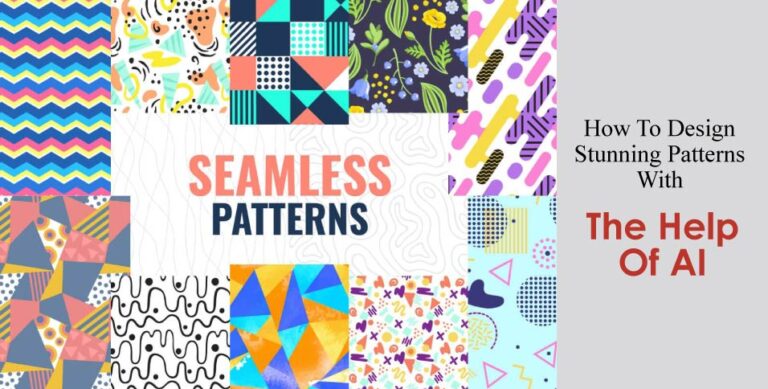In today’s crowded app stores, good looks alone won’t guarantee your mobile app a spot on users’ home screens. While a visually appealing interface certainly helps, it’s the user experience (UX) that truly determines an app’s success. Think of it like this: great UX is the difference between a shop that’s easy to navigate and find what you need, versus one that’s so frustrating you’ll never return. For businesses serious about building engaging and effective mobile apps, partnering with top UX agencies in London can be a game-changer.
What Is Mobile App UX (And Why Should You Care)?
In simple terms, mobile app UX is all about how a user interacts with your app. It encompasses everything from the layout of menus and buttons to the speed at which screens load, the clarity of error messages, and how easily users can complete their goals within the app.
Why is this so crucial? Here’s the deal:
- Users Are Impatient: We live in an era of instant gratification. If your app is slow, clunky, or confusing, users won’t hesitate to abandon it for a smoother alternative.
- The Competition is Fierce: Thousands of new apps are released every day. To stand out, your app needs more than just a good idea; it needs to deliver an exceptional experience that keeps users coming back.
- Good UX Equals Business Results: Whether your goal is increasing sales, generating leads, or boosting brand engagement, a well-designed app UX can directly impact your bottom line.
Key Components of a Stellar Mobile UX
User expectations are higher than ever. They want apps that not only function well, but that also look fantastic and cater to their specific needs. For app design agencies in London, this means considering every touchpoint of the user journey. Here are some essential elements of a mobile app UX that wows:
Intuitive Navigation: A Clear Path to Success
Imagine feeling like you are getting lost in a maze every time you open an app – frustrating, right? Intuitive navigation acts like clear signage, guiding users seamlessly through the app. This involves:

- Logical Structure: Organising content into easily recognizable categories and sub-categories.
- Visual Cues: Using icons, colour coding, or simple visual prompts to signal where a user is within the app and how to proceed.
- Effortless Search: Implementing search functionality for those who know exactly what they want but don’t want to hunt for it.
Minimalist Design: Less is More
According to Simpalm, a mobile app development company, “Minimalism isn’t about sacrificing beauty; it’s about decluttering. A clear interface with ample white space helps users focus on the essential information and actions. A well-placed visual hierarchy guides their attention to the most important elements, making the app feel clean, modern, and easy on the eyes.”
Thumb-Friendly Interaction: Designed for Real Use
Consider how people hold their phones – often with one hand, scrolling with their thumb. The best app design firms in London are mindful of this. They design buttons and interactive elements that are easy to reach, tap, and swipe. This is especially crucial for larger screen sizes, where reaching the top corners might be awkward.
Performance Optimization: Speed Thrills
In the digital age, speed is of the essence. Users expect apps to load quickly, respond instantly to input, and transition smoothly between screens. Slow loading times can cause frustration and lead to abandoned apps.
App design companies in London collaborate closely with their developers to optimise code, compress images, and minimise network requests to ensure your app feels snappy and responsive.
Clear Feedback: No Guesswork
Leaving users in the dark about what’s happening in your app is a sure way to frustrate them. Every action should have a clear, visual response. Think loading spinners, progress bars, confirmation messages, or even subtle animations to signal that a task is underway. This builds trust and reassures users that the app is working as expected.
Personalization: Tailored Experiences
Users love feeling like an app “gets” them. Personalization can take many forms:
- Recommendations: Suggest products, content, or features based on a user’s past behaviour or stated preferences.
- Customization: Allow users to control the look and feel of the app (e.g., dark mode, font size).
- Location Awareness: Offer deals or recommendations based on a user’s location.
Accessibility: Design for All
Designing for accessibility is not just a legal requirement, it’s a sign of a well-thought-out app. This includes:
- Clear Contrast: Ensure text is easily readable against the background, particularly for users with visual impairments.
- Screen Reader Support: Properly structured code allows screen readers to effectively convey content to visually impaired users.
- Alternative Navigation: Offer options beyond touch for those who might have difficulty tapping or swiping.
Error Prevention: Fail Gracefully
No app is perfect. Errors are bound to happen, but the way your app handles them matters. Clear, actionable error messages that guide users towards a solution build trust and prevent frustration.
Security and Privacy: The Foundation of Trust
User data usage is a sensitive topic. App developers in London know that earning trust requires strong security measures and clear privacy policies. Users expect apps to protect their personal information and provide clear information about how their data is used.
User Testing and Iteration: The Cycle of Improvement
Great UX design isn’t a one-and-done deal. Leading app design companies understand the importance of gathering user feedback, testing different iterations of the app, and making continuous improvements. This iterative process ensures your app evolves to meet changing needs and preferences.
The Role of UX Design Agencies London
Designing a mobile app with exceptional UX isn’t a simple task. It requires a deep understanding of user psychology, design principles, and technical expertise. That’s why partnering with a specialised UX design agency in London can be a game-changer. These agencies bring a wealth of experience to the table:
- User Research: Through interviews, surveys, and usability testing, they uncover insights about your target audience that inform design decisions.
- Iterative Design: They create prototypes, gather feedback, and refine the design through multiple iterations, ensuring the final product truly meets user needs.
- Technical Know-How: They collaborate closely with their developers, ensuring the design is feasible and optimised for performance.
- Post-Launch Optimization: They continue to monitor user data and feedback, identifying areas for improvement and suggesting updates to keep your app relevant and engaging.
Companies like Pixelfield have a proven track record of delivering mobile apps with outstanding user experiences. Their expertise spans various industries and app types, proving they have a firm grasp on what makes users tick – no matter the context.
Investing in great UX isn’t just about creating a pretty app; it’s about creating an app that users love and that drives real results for your business. If you’re ready to take your app to the next level, don’t underestimate the value of partnering with an experienced UX agency in London. Your users – and your bottom line – will thank you.
Also Read: 5 Essential Skills You Need to Become a Mobile App Developer















